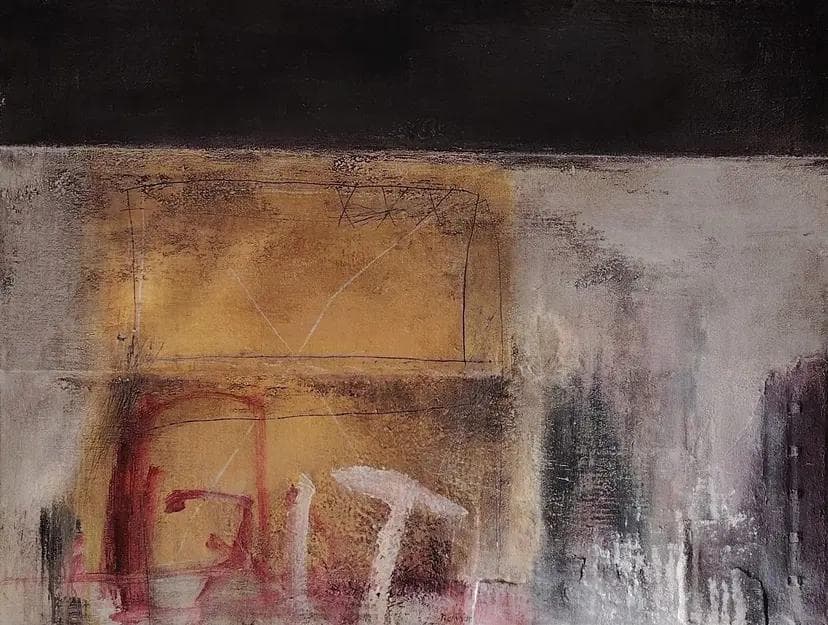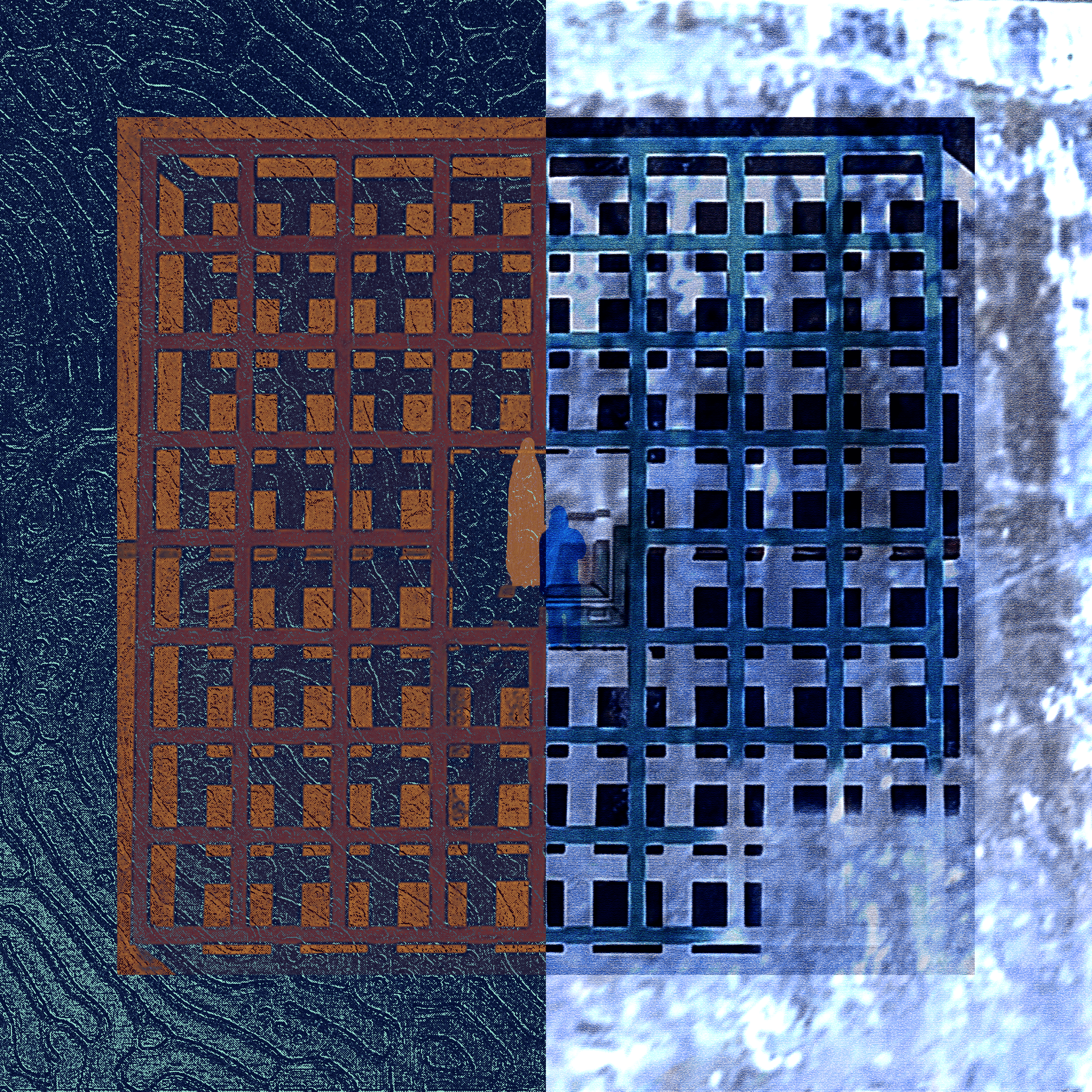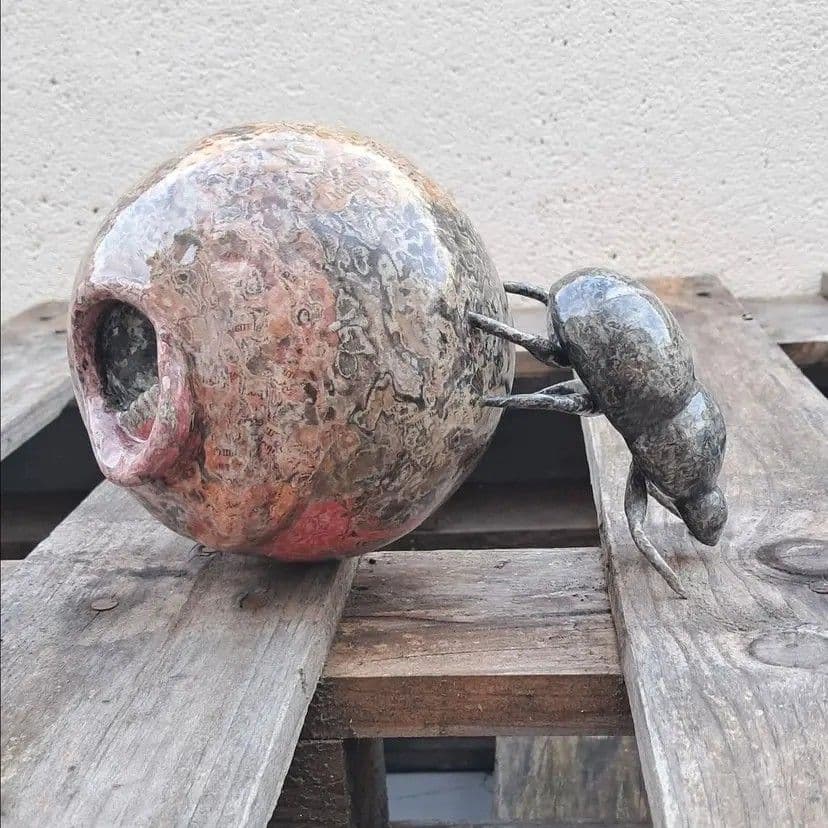Xochi Magazine.
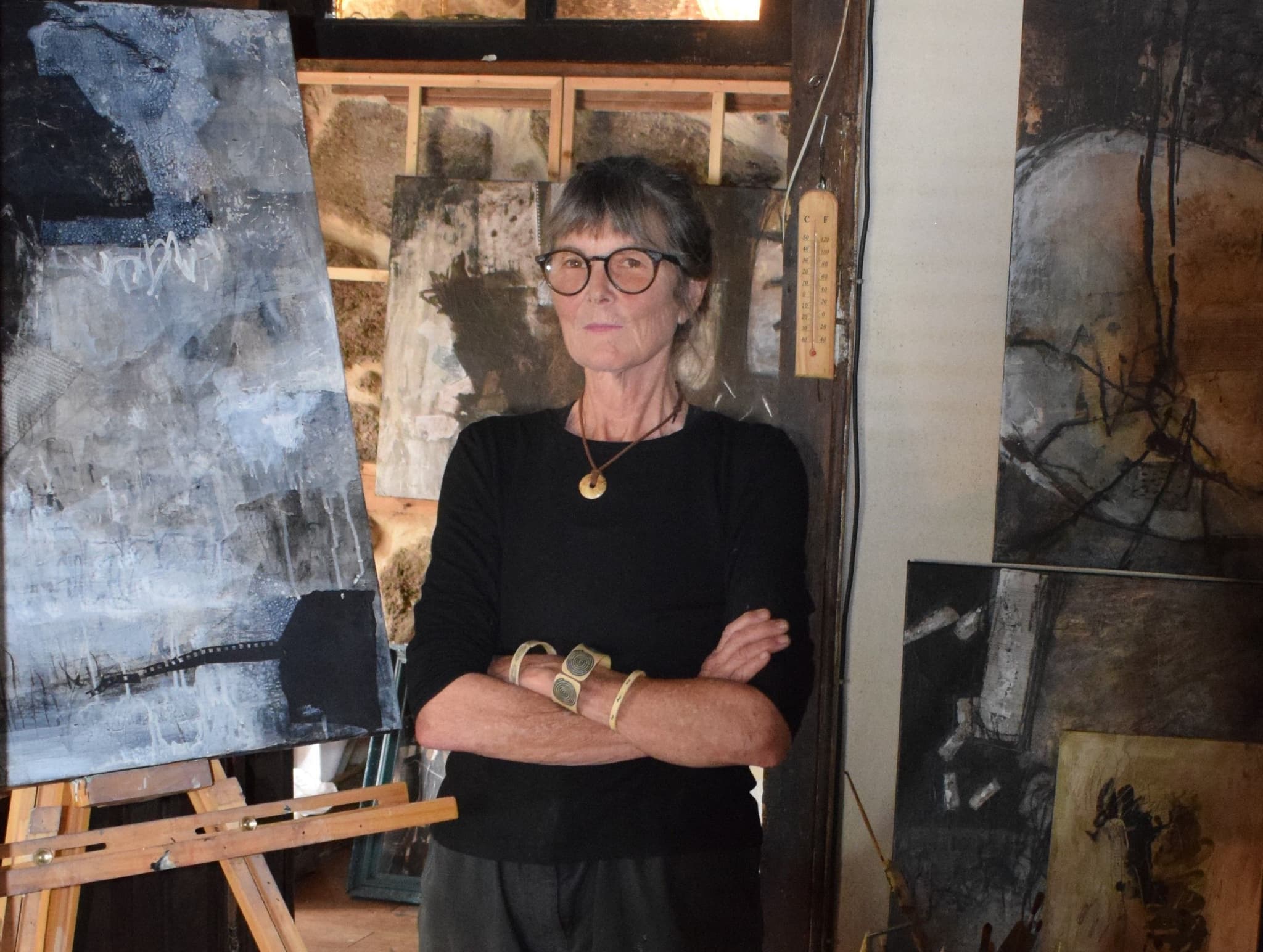
Deborah Osberg: Beyond Defiance
Author
Belinda Levez
Published
Oct 2024
Share
Beyond Defiance: From Critique to Abstract Expressionism
Deborah Osberg, a South African/British artist and academic, was born during the apartheid regime and became a young adult during its peak (in the 1970's and 1980's). Her parents, while believing themselves to be non racist, were nevertheless complicit in upholding the apartheid system. Growing up in a conservative family, she was always defiant of the rules, but initially saw her whiteness as a privilege and, like her parents, did not question the apartheid system. This changed when she went to university where she quickly became politicised. Deborah’s personal journey—from a budding child artist to a prominent figure in both academia and the arts—is deeply shaped by her experiences in apartheid South Africa, her love for animals and nature, and her exploration of educational philosophy.
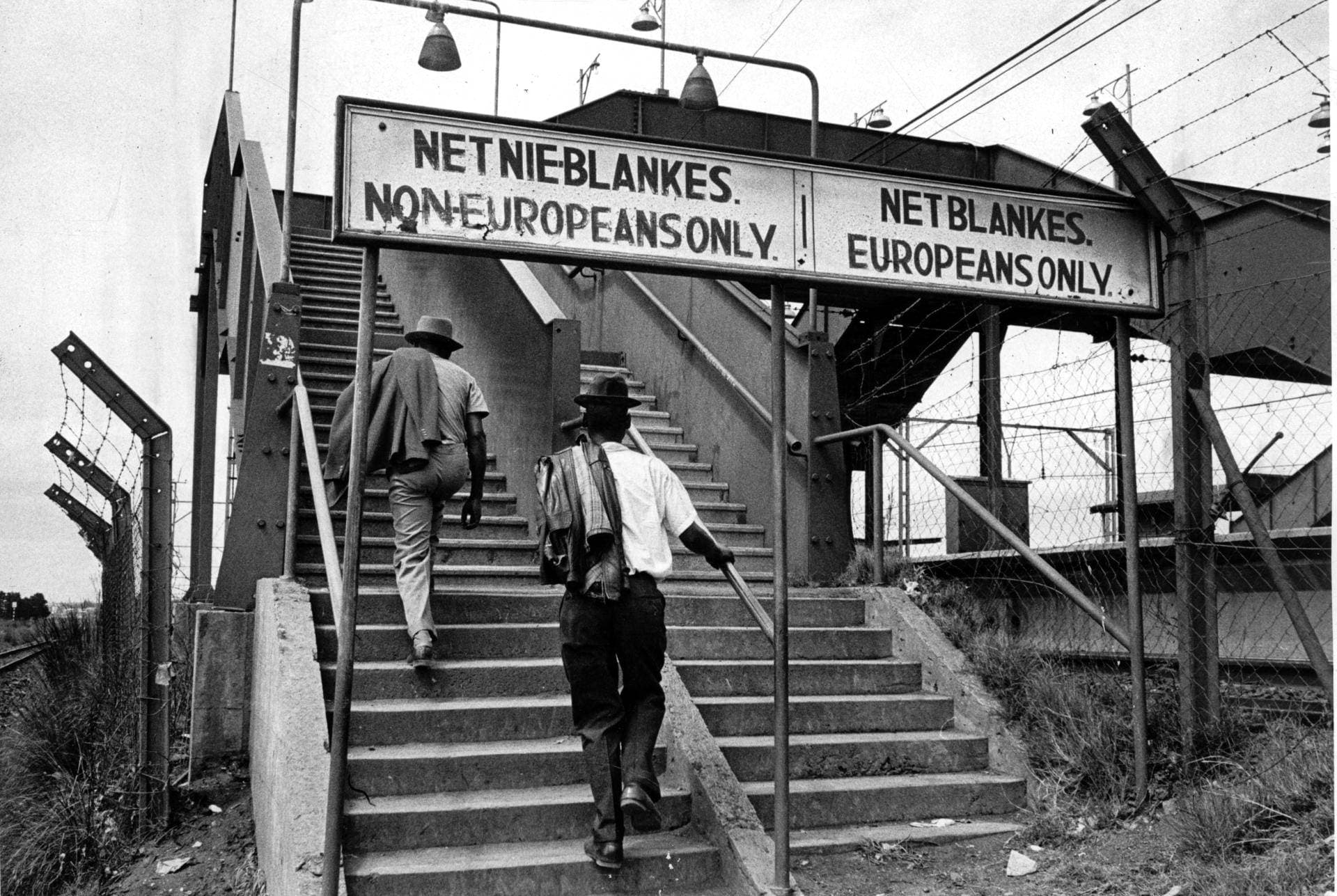
Early Artistic Talent and Recognition
Deborah discovered her passion for art at the age of seven. Encouraged by her parents, she began taking art classes under the guidance of Margueritha Prins. Her first major achievement came that same year when she won a prize for drawing and painting at an exhibition of child art in the Witwatersrand Agricultural Society's "Rand Easter Show" one of the country's biggest annual expos at the time. In the years following, she continued to win art awards at this expo, gaining a mention for this in the local newspaper at age 9. Although this early recognition established her as a promising young artist, Deborah, who was also passionate about animals from an early age, insisted on changing her focus to horse riding in her teenage years, achieving considerable recognition in that field as well. Despite her obsession with horses, she never dropped art, which remained a side interest. School, however, became a constant source of frustration for Deborah, particularly her dislike for authority - she hated being told what to do, and developed a stammer, which was a source of much concern for her parents and teachers. She eventually attended a school for "resistant learners", where, given sufficient academic freedom, she excelled academically and later pursued a degree in zoology, with a view to becoming a veterinary scientist. Although she quickly realised she wanted to switch her degree to fine arts, she was discouraged from doing so, being told that art had no viable career prospects.
Life in the Namib Desert and Return to Zoology
Upon graduating as a Zoologist, in the late 1970's, Deborah sought to escape the confines of city life and took up a position at Gobabeb, an ecological research station, deep in the Namib desert in what was South West Africa (now Namibia). For two years, she lived first in a tent, then a caravan in a dry river bed where raw nature and "real" scientific fieldwork reignited her interest in zoology and inspired her to return to academia to complete a master’s degree in zoology. This academic pursuit led to her working in South African nature reserves and combined her deep love for animals with her burgeoning scientific interests.
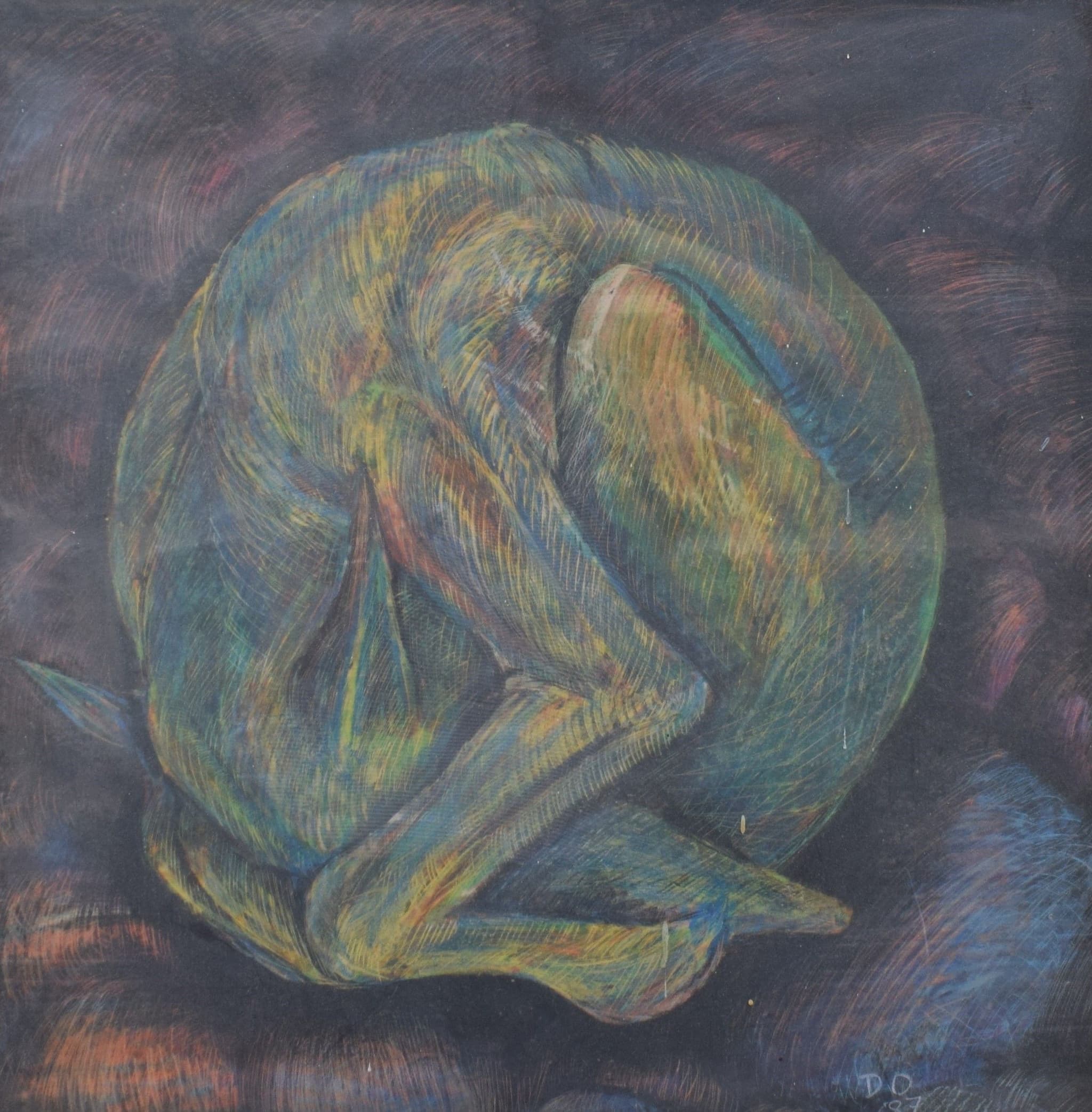
Transition to Education and Challenges in Apartheid South Africa
In the 1980’s, Deborah took up her first lecturing position at the University of Venda, a university for Black students situated in one of South Africa's many Black "home lands" during the apartheid era. Here, the starkness of the educational disparities between black and white populations in South Africa became apparent to her for the first time: she was attempting to teach university level courses to poorly educated and impoverished Black students from rural (and in many cases) tribally traditional communities, living in rudimentary accommodation without electricity. At this time most of the lecturers were white and from more privileged backgrounds. Despite the cultural divide, Deborah developed a strong connection with her students and gained a deeper awareness of the racial inequalities in South Africa’s education system.
After the fall of apartheid in the early 1990's, Deborah was recruited to the University of the Witwatersrand, a formerly white, elite university in Johannesburg. Her script was to use her experience in Venda to improve the education of Black students in an elite setting. While she developed a successful course that was later published, she grew increasingly disillusioned with the institution's efforts to mould Black students into white models of success. When, in the late 1990's, the university’s first Black vice chancellor, William Makgoba, was ousted for being too radical, Deborah decided to leave and take a sabbatical to rethink possibilities for her career.
Pursuing a PhD and Embracing Art Again
In 2000, Deborah moved to the UK, where she pursued a PhD in educational philosophy, exploring themes of power, knowledge, and democracy. Here she was able to channel her frustrations with “western” models of authority into a focused critique of taken-for-granted power systems. Heavily influenced by philosophers Michel Foucault and Jacques Derrida, Deborah's academic work examined the complexities of the intersection between education and power structures. Despite her academic focus, she never abandoned art. She continued to create, producing figurative black-and-white paintings that often incorporated human forms.
In 2020, Deborah moved to Portugal, where she embraced a more sustainable lifestyle, caring for an indigenous mountain forest and living alongside goats, sheep, chickens, dogs and cats. This move was partly driven by a desire to escape the conservatism and xenophobia of Brexit UK, as well as her growing disillusionment with the misuse of power in academic institutions.
A New Chapter in Abstract Art
In Portugal, Deborah reconnected with her art on a deeper level. She enrolled in Nicholas Wilton's "Creative Visionary Programme" (CVP) art course, which introduced her to abstract art and new artistic techniques. Though she initially struggled with the abstract medium, she sold her first paintings within a year to a neighbour, which encouraged her to continue pursuing her craft. Deborah soon joined an artists' collective, where her work gained further recognition, selling multiple pieces at her first group exhibition.
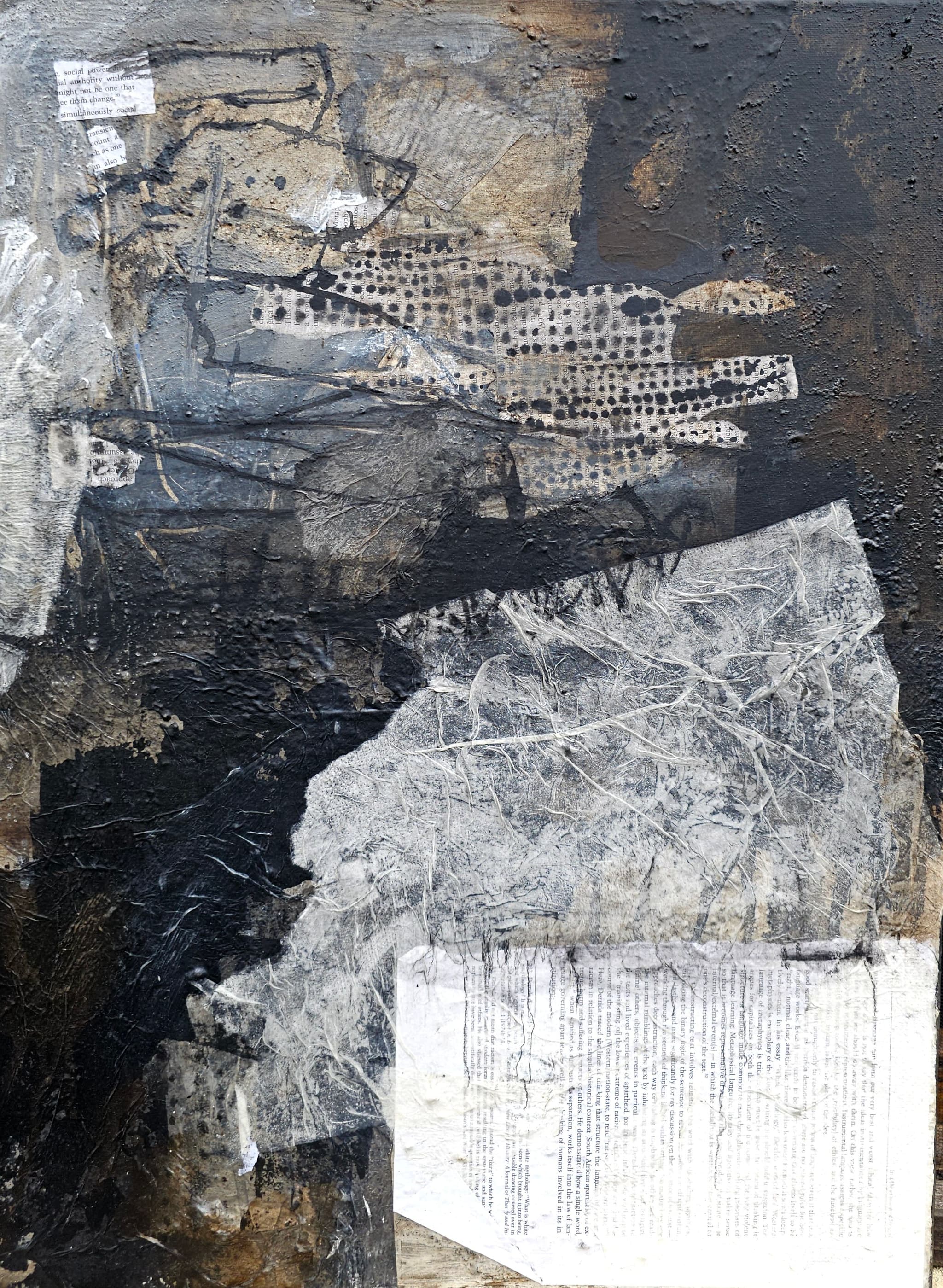
Her art, influenced by her experiences in apartheid South Africa, educational philosophy, and nature, often incorporates organic forms like animals, cell shapes, and mycelium. An early piece made in 1987, with a circular composition in pastels contains elements of a horse, dog, human and rat. Deborah’s “Dialogues” series explores the complexities of communication, while her “Farm Life” series reflects the raw, unfiltered reality of farm life which is often not pretty. For Deborah, art is a deeply intellectual pursuit—a way to grapple with difficult concepts and emotions, both political and ethical.
Artistic Techniques and Inspirations
Deborah works primarily with acrylics but often experiments with natural pigments sourced from the land around her. Inspired by one of her "workaway" volunteers, she began incorporating charcoal, sand, soil, and rust into her paintings, using materials like tree bark from ancient forests and torn academic texts as part of her compositions. Her years in academia continue to influence her, with written words often making their way into her art.
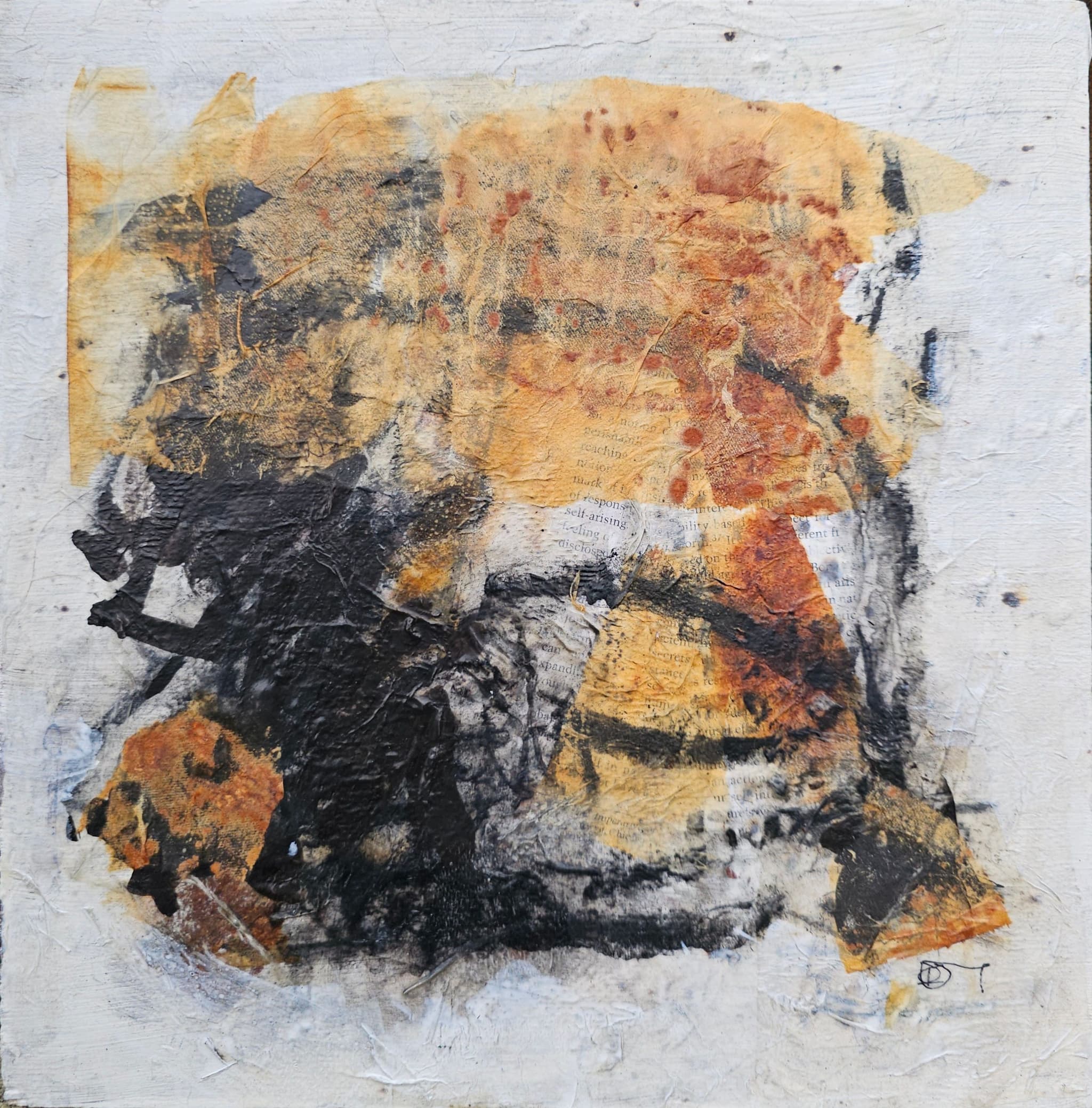
She builds her compositions in layers, allowing the process to unfold naturally on the canvas. Though Deborah admires contemporary artists like Picasso (her hero), her recent inspirations include David Pearce and Liane Merz, both of whom influence her freeform approach to shape and composition.
The Legacy of Deborah’s Artistic and Academic Journey
With four decades in academia and a burgeoning career in art, Deborah’s journey is one of constant reinvention. Her work—whether in the classroom or on the canvas—has always been about pushing boundaries and questioning established norms. For her, art is a way of thinking deeply, a process of creative problem-solving that allows her to express ideas beyond words. The word "beyond" has featured heavily in her life, with several of her academic texts using the word beyond in their titles.
As she continues to explore the intersection of art, philosophy, and nature, Deborah's work remains a testament to her lifelong dedication to intellectual and creative exploration. From apartheid-era South Africa to the peaceful landscapes of Portugal, her story is one of resilience, transformation, and a relentless pursuit of understanding the world through both art, philosophy and generalised defiance to focussed abstraction.
Never miss a Feature.
Exhibitions • Interviews • News
Est. 2024
